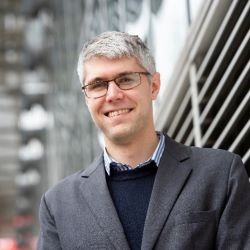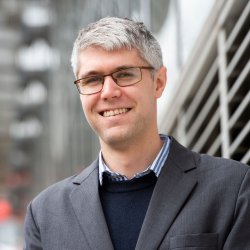Open research for transparent energy planning in developing countries for carbon-constrained growth
Dr Michael Short, Senior Lecturer in Process Systems Engineering and Fellow of the Institute for Sustainability, and his group develops decision-support software based on optimisation formulations for sustainability challenges in energy, chemicals, and supply chains. Using open practices and standards makes working with collaborators from across the world easier, while increasing the accessibility, reproducibility, and impact of their work.

Our aim
Association of South East Asian Nations (ASEAN) countries, as developing economies, have seen dramatic rises in CO2 emissions over the past 20 years (e.g., the CO2 per capita of Malaysia has risen from 5 t/y in 2000 to 8 t/y in 2018), and therefore it is important to develop tools that incorporate region-specific conditions, and include potential market mechanisms that allow policymakers to assess pathways towards lower emissions. Existing tools are developed by researchers in developed economies and may not include region-specific technologies or social and technological barriers, while also not including optimal emissions trading schemes.
Our approach, challenges and outcomes
The project, supported by two funding agencies over three years (FCDO and British Council), has resulted in the development of an easy-to-use, open-source regional energy planning software, which we named DECO2 (Decarbonisation Options Optimisation). The software was co-developed with Malaysian and Philippine industry and government partners. It was built by international collaboration, with the main developers located in Malaysia and the UK, collaborating closely virtually and in-person. The software was disseminated via workshops and seminars, with open code and databases [3,4,5]. Since, the Malaysian developer (Dr Purusothmn Nair) secured a position at Oxford due to showcasing his work via his open portfolio.
Dr Short’s group publishes open-access papers with accompanying code hosted on open repositories as standard process [6,7,8]. This leads to more trust in our work, make collaborations easy to begin and maintain, and saves time when new group members or other researchers want to develop extensions to the work. We also teach these open practices to undergraduate students at Surrey and to academics via workshops.
The main challenges are making the specialised dependencies and commercial solvers accessible for users. This may lead to frustrations for inexperienced users, as the users without access to the commercial solvers may have poorer performance, or not be able to solve larger problems. Furthermore, since we do not develop graphical user interfaces (GUIs), users (industrial and policymakers) may be disinterested despite the number of sample problems and documentation. We have therefore attempted to develop online platforms and common interfaces (excel spreadsheets) that are easy for most to understand.
Overall, we believe that open research practices are worth the additional effort due to large increases in impact, and benefits that increase communication and collaboration.
Discover more about the project: A software framework for optimal decarbonisation planning for ASEAN countries or read our news piece about how workshops and software support Malaysia to plan carbon emission reductions.
